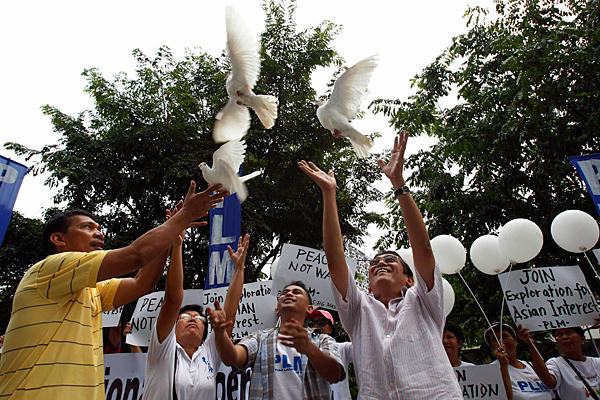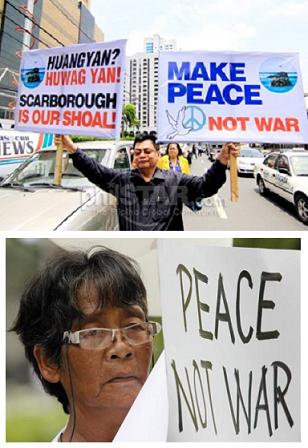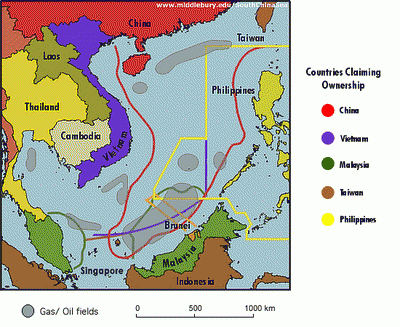| About Us | Contact Us | Calendar | Publish | RSS |
|---|
|
Features • latest news • best of news • syndication • commentary Feature Categories IMC Network:
Original Citieswww.indymedia.org africa: ambazonia canarias estrecho / madiaq kenya nigeria south africa canada: hamilton london, ontario maritimes montreal ontario ottawa quebec thunder bay vancouver victoria windsor winnipeg east asia: burma jakarta japan korea manila qc europe: abruzzo alacant andorra antwerpen armenia athens austria barcelona belarus belgium belgrade bristol brussels bulgaria calabria croatia cyprus emilia-romagna estrecho / madiaq euskal herria galiza germany grenoble hungary ireland istanbul italy la plana liege liguria lille linksunten lombardia london madrid malta marseille nantes napoli netherlands nice northern england norway oost-vlaanderen paris/Île-de-france patras piemonte poland portugal roma romania russia saint-petersburg scotland sverige switzerland thessaloniki torun toscana toulouse ukraine united kingdom valencia latin america: argentina bolivia chiapas chile chile sur cmi brasil colombia ecuador mexico peru puerto rico qollasuyu rosario santiago tijuana uruguay valparaiso venezuela venezuela oceania: adelaide aotearoa brisbane burma darwin jakarta manila melbourne perth qc sydney south asia: india mumbai united states: arizona arkansas asheville atlanta austin baltimore big muddy binghamton boston buffalo charlottesville chicago cleveland colorado columbus dc hawaii houston hudson mohawk kansas city la madison maine miami michigan milwaukee minneapolis/st. paul new hampshire new jersey new mexico new orleans north carolina north texas nyc oklahoma philadelphia pittsburgh portland richmond rochester rogue valley saint louis san diego san francisco san francisco bay area santa barbara santa cruz, ca sarasota seattle tampa bay tennessee urbana-champaign vermont western mass worcester west asia: armenia beirut israel palestine process: fbi/legal updates mailing lists process & imc docs tech volunteer projects: print radio satellite tv video regions: oceania united states topics: biotechSurviving Citieswww.indymedia.org africa: canada: quebec east asia: japan europe: athens barcelona belgium bristol brussels cyprus germany grenoble ireland istanbul lille linksunten nantes netherlands norway portugal united kingdom latin america: argentina cmi brasil rosario oceania: aotearoa united states: austin big muddy binghamton boston chicago columbus la michigan nyc portland rochester saint louis san diego san francisco bay area santa cruz, ca tennessee urbana-champaign worcester west asia: palestine process: fbi/legal updates process & imc docs projects: radio satellite tv |
printable version
- js reader version
- view hidden posts
- tags and related articles
Spratly Islands Dispute: Unity Statementby Philippines PO's & NGO's Sunday, May. 27, 2012 at 11:24 PMThe contending states claiming territorial jurisdiction over sections of the ‘Southeast Asian Sea’ are only heightening regional tensions to a frightening degree. In particular, the contentious row between the Philippines and China is being amplified by certain quarters to a near-conflict level for seemingly nationalistic, but in fact chauvinistic reasons. And as the almost daily sounds of fury raise the stakes for the region’s masses of humanity, many more sober voices of concern must now come out to be heard and not be silenced by the saber-rattling of a deluded few.
UNITED VOICES OF CONCERN (Amidst the sounds of fury over the Southeast Asian Sea)
Southeast Asia’s regional security environment faces a clear and present danger. The Manila-Beijing standoff emanating from their rival claims to the Southeast Asian Sea must urgently be turned around and be resolved through a process of open diplomacy between the two nations. Both sides need to do so swiftly in order to avert a possible scenario of military confrontation affecting the wider Asia-Pacific region. If this happens, it would only cause a massive blow to the Philippines—its peoples, the economy and society at large. Undoubtedly, today’s international situation is highly fluid and volatile. The global capitalist system remains dominated by an elite few and its economic and political control over the world’s social majority is primarily upheld by a corporate-driven and profit-oriented neoliberal paradigm. But ever since last year’s worldwide mass upsurges of the global poor, the 99% was able to directly challenge the exploitative and oppressive rule of the 1% across many regions of the world. Yet still, the world continues to dangerously swing from one economic crisis to another, from one toppled regime to the next, and from one war of aggression to yet one more. And here in the Philippines, the Aquino regime is now seemingly driving our country into a potential state of war with China. Malacañang’s over-reactive pro-US imperialist foreign policy stance is needlessly provoking Beijing into taking a more belligerent attitude towards Manila. Instead of initiating and pursuing a long-range strategic foreign policy thrust premised on the universally acknowledged internationalist principles of sovereign independence, humanist solidarity, people-centered development and progressive self-determination, the Aquino regime is merely maintaining a century-old dependency track in managing our external relations. At the same time, China must also be firmly admonished for its increasing militarization and power-bullying of other regional claimants in the Southeast Asian Sea. Beijing must realize that the only long-term comprehensive resolution to the regional crisis is through a regionalized multilateral approach which does not have to involve the world’s chief imperialist power, the United States. If China adheres to regional cooperation, it can reap more respect and friendly allies from around its neighborhood without having to impose its powerful might to justify its ends. In the meantime, the United States is now re-positioning and enhancing its forward power-projection capabilities around the broader Asian region with its aggressive foreign policy framework of an ‘Asian Pivot’. This explains why Washington continues to remain actively involved within the ASEAN Regional Forum’s (ARF) political-security dialogue process, which also includes China and all the ASEAN member-states. Yet given this context, a parallel regional dialogue mechanism which only involves the ASEAN, China, plus other interested and concerned Asian states, can already be initiated and set up to specifically concentrate on resolving the Southeast Asian Sea dilemma without Washington’s undue influence, as is the case with the ARF approach. Nevertheless, the collective voices and actions of the many all around the world have already been able to progressively change and radically alter the course of the early 21st century. The masses in many parts of the world, such as in Latin America and the Middle East, are now marching toward a more consciously self-determined history to further liberate humanity from imposed wars of aggression and systemic misery. It is this same fundamental spirit that should greatly guide all the peoples living within and around the Southeast Asian region, including its large neighbor China, to always and consistently strive for genuine peace and freedom for the larger regional community of states and societies. This we must do if we all are to principally advance and eventually establish our common vision of a regionalist community within a truly internationalist world order. Therefore, it is for this principled reason that we are all gathered today to stand together as one united voice concerned for our region’s peace and progress. We are now collectively and loudly voicing out our immediate and urgent concerns about the presently tense and unstable regional security situation and for it to be directly resolved through a transparent mode of diplomacy. To reiterate, we do not want any open military confrontation to break out between China and the Philippines in relation to the Southeast Asian Sea problem. And we certainly do not want the US to intervene in any way because its priority strategic agenda will never be in favor of Manila or the Asian region as a whole, but always in line with Washington’s global hegemonic schemes for world capitalist domination. We also believe that the claims to the contested Southeast Asian Sea can be equitably resolved through open diplomacies of all governments concerned, under the framework of regional cooperation and sharing, than through gunboat diplomacy or open war, where only the powerful nations stand to gain. Finally, as we all add our voices of concern to this regional problem, we must remain open-minded and critically discerning of the constantly changing conditions that led us to this situation in the first place. We must always pursue a collective regional approach that fosters peace and cooperation. We must not allow ourselves to be used as a ‘provocation agent-state’ for or against another neighboring state, lest we really aim to ignite a broad Asia-Pacific war with horrendous consequences. Thus, we raise our voices today to say that this is what we shall never allow to happen. Standing united as a broad progressive front, we shall exert all possible efforts to oppose and stop any future conflict or war from breaking out as a result of misplaced national-chauvinist reactions from both sides to this impasse. We must not wait for tomorrow to pass. Let us all act today to block the road to a potential regional war fanned by heated passions over rocks and shoals. Let us now mobilize and support all moves for transparent diplomacy in combination with mass pressure from below and across the region. ### Signed by: Alliance of Progressive Labor (APL), AWARDEE, Inc., DAMMMBA, Kilusan Para sa Pambansang Demokrasya (KPD), Liga Manggagawa, MAKABAYAN, Pagkakaisa ng Kababaihan para sa Kalayaan (KAISAKA), Partido Lakas ng Masa (PLM), Peace Women Partners, Philippine Women Network for Peace and Security, Partido Manggagawa (PM), SANLAKAS, SCRAP VFA Movement, Socialista Women, WomanHealth, Women’s Education, Devt., Productivity & Research Organization,Inc. (WEDPRO), Young Moro Professionals Network, Youth for Nationalism and Democracy (YND), Stop the War Coalition Philippines http://www.apl.org.ph __________________________________________________________________________ PLM Statement on deteriorating Philippine-China relations Statement of Concern and Call for Diplomatic Resolution of the Philippine-China Conflict By Party of the Laboring Masses (PLM) We are extremely concerned at what appears to be a deteriorating situation between the Philippines and China regarding the dispute over the Spratly Islands and the Scarborough Shoal. China is definitely stepping up its bullying and is now targeting our economic interests – tourism and agricultural produce – to make us accede to their claims. To make matters worse, belligerent protests, attended by flag burning, have erupted in the Philippines, in China, and in other parts of the world, targeting embassies and consulates of the contending countries. These are happening despite both governments’ brandishing their commitments to a diplomatic solution. We demand to know why the diplomatic efforts are not working despite statements by Chinese and Philippine foreign diplomats that they are pursuing the talks and remain in contact with each other. We call on the Aquino government to be transparent about our diplomatic effort and explain to us what’s going wrong. We call for open diplomacy so that the whole nation is informed and we can all prepare for better or for worse in this deteriorating situation. However, we reiterate that a diplomatic solution, rather than belligerent protests, is the best way to protect our national interests in this conflict. We also urge protesters from both sides to stop burning each other’s national flags; we do not believe that this kind of nationalist posturing serves the national interests of any nation. We also note that the Aquino government was following a policy of involving the United States government in the dispute, hoping that the US would back us to the hilt. This was a mistaken strategy. We warned then that the US would ultimately protect only its national interests and not ours. Now the US seems to be backing off from its commitment of support in case we are attacked by a foreign country. Is the deteriorating situation today also the result of this strategy gone wrong? While we condemn China’s bullying, we continue to call for a calm response, i.e., a negotiated, diplomatic solution to the problem. We maintain that an independent foreign policy, especially one that does not pit the US and other foreign powers against our neighbors, will genuinely serve our national interests today and in the years ahead. To help in moving forward to a peaceful solution to the conflict, the Partido Lakas ng Masa (PLM) is enjoining various peace groups in the country to join us in a peace gathering at the Peace Bell in Quezon City Memorial Park next week. We have deliberately chosen a non-government symbol in order to emphasize the need for a diplomatic and peaceful resolution to the conflict. http://www.masa.ph/
Report this post as:
Spratly Islands Disputeby Philippines PO's & NGO's Sunday, May. 27, 2012 at 11:24 PM
error
Report this post as:
Spratly Islands Disputeby Philippines PO's & NGO's Sunday, May. 27, 2012 at 11:24 PM
error
Report this post as:
|





